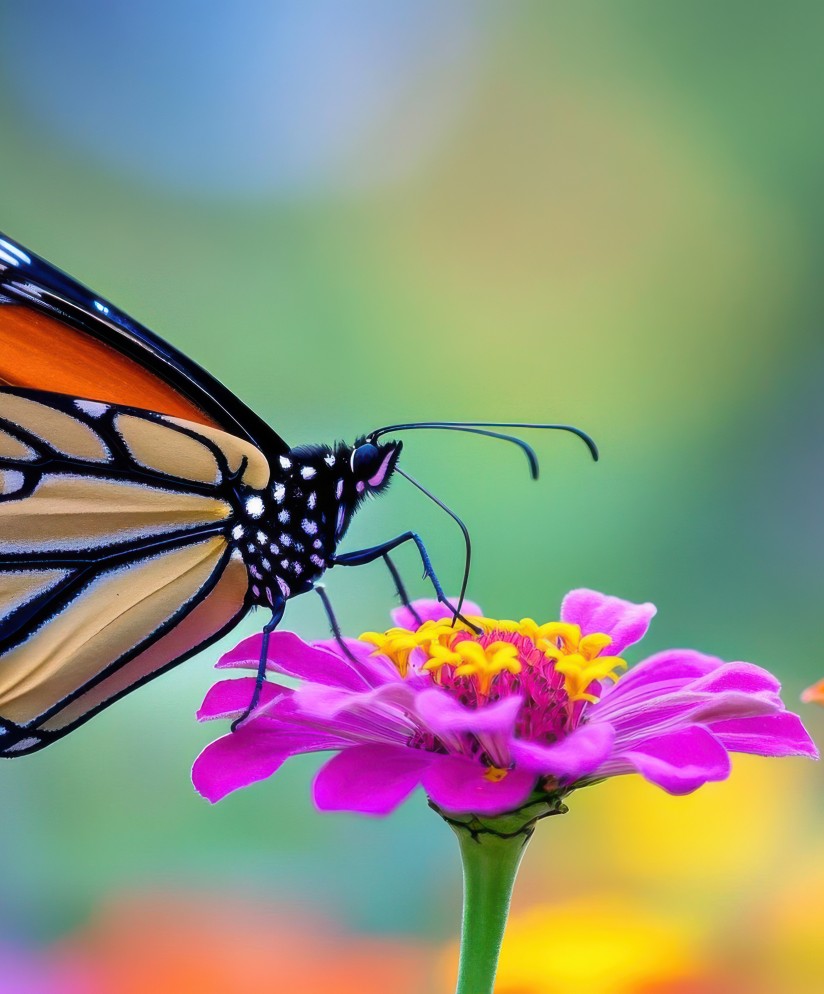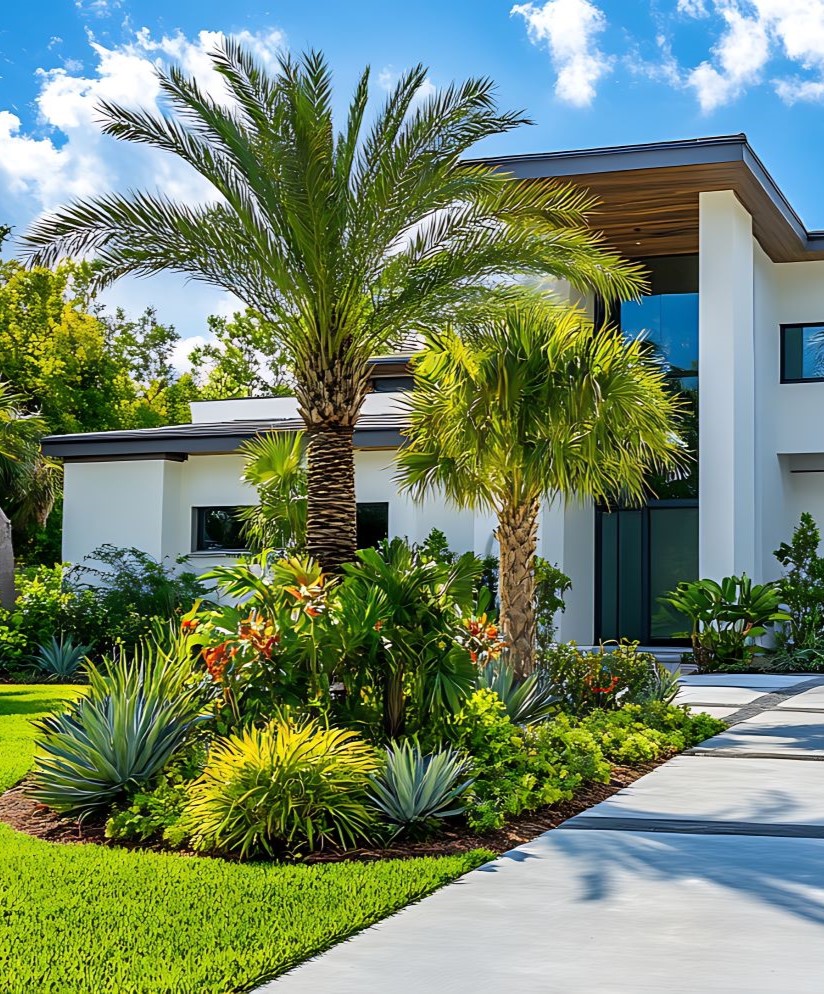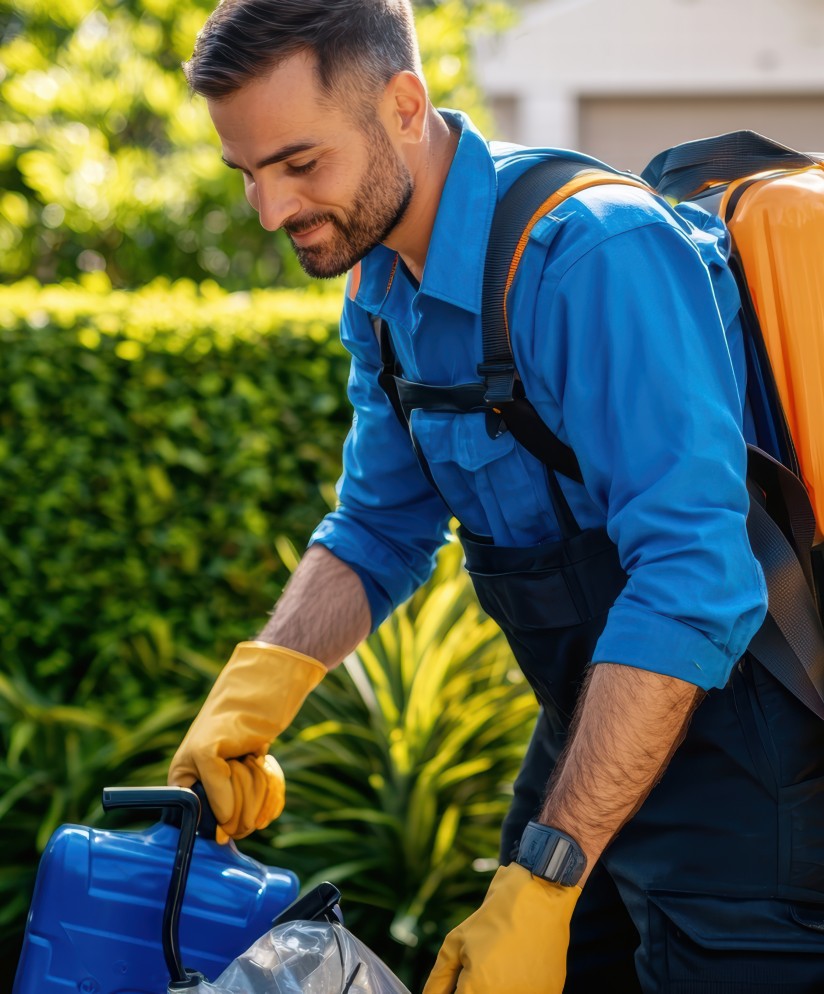Understanding, Appreciating, and Protecting Florida's Vital Pollinators
Florida is known for its lush landscapes, vibrant wildlife, and unique ecosystems. Central to these environments’ health are pollinators—creatures that help plants reproduce, support the food supply, and sustain ecological balance. Bees, butterflies, birds, bats, and other insects play a crucial role in maintaining Florida’s biodiversity. This blog discusses the importance of Florida pollinators, the threats they face, and practical steps to protect them.
Meet Florida’s Pollinators
- Bees, including native species such as honeybees and bumblebees, play a crucial role as key pollinators for many crops and wildflowers. Florida hosts hundreds of native bee species.
- Butterflies: Notable species such as the Zebra Longwing (Florida’s state butterfly), Monarch, and Atala butterfly assist in flower pollination and help maintain genetic diversity among plants.
- Birds: Hummingbirds, especially the Ruby-throated Hummingbird, are crucial for pollinating tubular flowers.
- Bats: Although less recognized, bats pollinate nocturnal plants and aid the reproduction of tropical fruits like bananas and mangoes.
- Other insects include moths, beetles, and flies, which also contribute to pollination and benefit both agricultural and wild ecosystems.
Why Are Pollinators Important?
Pollinators are essential for the reproduction of flowering plants. They help transfer pollen, allowing fruits, seeds, and vegetables to grow. In Florida, pollinators support crops like oranges, strawberries, blueberries, and tomatoes. Beyond farming, they sustain healthy habitats for wildlife, stabilize soil, and improve water quality.
Threats Facing Florida Pollinators
- Habitat Loss: Urban development, farming, and landscaping diminish natural habitats essential for pollinators.
- Pesticides: Chemical pesticides and herbicides can damage or kill pollinators, interfere with their navigation, and contaminate their food sources.
- Climate Change: Changes in weather patterns impact blooming times, migration pathways, and the availability of food and shelter for pollinators.
- Disease and Parasites: Bees and other pollinators face threats from diseases, mites, and invasive species that endanger their populations.
How You Can Help Protect Florida’s Pollinators?
- Plant Native Species: Opt for Florida-native flowering plants that offer nectar and pollen year-round, such as firebush, coreopsis, and passionflower.
- Proper Use of Pesticides: Use cultural practices for effective pest control and reduce the use of harmful chemicals in your garden or lawn.
- Create Habitats: Offer shelter through brush piles, bee hotels, and undisturbed areas for nesting and overwintering.
- Support Conservation Efforts: Get involved in local conservation projects, volunteer for habitat restoration, and promote policies that favor pollinators.
- Educate Others: Spread awareness about pollinators by sharing information with friends, family, and your community to encourage collective action.
Florida’s pollinators are the unsung heroes that support the state’s natural beauty and agricultural prosperity. By recognizing their significance and taking action to protect them, we create a healthy environment for future generations. Every garden, park, and backyard can become a refuge for pollinators—let’s make a difference together!
Let Landscape By Design of Palmetto Transform Your Outdoor Space
At Landscape By Design of Palmetto, we specialize in creating outdoor spaces that are both beautiful and built to last. Our expert team provides complete landscape design, hardscapes and retaining walls, irrigation and sprinkler systems, landscape lighting, and pest control services — all customized to Florida’s climate and your property’s needs.
Whether you’re enhancing your backyard, redesigning your front yard, or building a new outdoor living area, we bring creativity, craftsmanship, and care to every project. Together, we’ll design a landscape that’s stunning, sustainable, and easy to maintain — a space you’ll love spending time in all year long.



